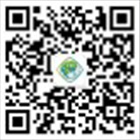The research workshop took place on October 9th, 10th, and 12th from 6:00 pm to 8:00 pm. The primary objective was to support master's and PhD students in their research, particularly in navigating the challenges of publishing their first journal articles. The event featured Dr. Blaise Ravelo, a professor at NUIST, whose research interests include multi-physics modeling and universal electronics engineering. Since 2020, Dr. Ravelo has been recognized by Stanford University, US, among the top 2% of the world’s leading life scientists.

He is actively involved in several international research projects and has supervised 11 PhD students. Additionally, he is a senior member of IEEE and has organized numerous workshops and special sessions at international conferences. Furthermore, he has co-authored more than 430 scientific research papers, making him highly qualified to lead the event.
KEY POINTS MADE
Research
PhD students should gain research experience by actively engaging in various research-related activities, such as:
• Working as research assistants
• Publishing scientific papers
• Participating in different research contracts
• Teaching
Proof
After conducting quality research, it is essential to convince experts to publish the work in a scientific journal. This requires providing solid proof, which can be guided by analyzing published scientific papers. Two fundamental types of proof can be used: theoretical proof and experimental proof.
Competition
Writing scientific papers can be as competitive as any sport; in fact, this competition is a major driver of innovation in the field. Maintaining a healthy competitive mindset, similar to that in sports, can be beneficial. Healthy rivalries foster team spirit, generate passion, and nurture a culture of sacrifice, curiosity, and patience among students in a given field. Competition also provides students with common goals, motivating them to work hard and achieve their primary objectives.
Template of a Scientific Paper
The essential components of a scientific paper include:
• Heading: Includes the author’s name and other identifying information.
• Abstract: A brief description summarizing the paper’s content.
• Main content: The core of the paper, encompassing the research findings, references, and supporting proofs.
SoA and WHWWW Method
The SoA section is a bibliographic review or overview of existing literature on a topic. It is best approached by framing questions around the research topics, as the questioning method aligns with the natural human approach to understanding. The speaker emphasized that asking questions helps to clearly define and flesh out the research objectives.
Search Engines and Tools for Scientific SoA
Dr. Blaise advised students
Dr. Blaise advised students to use Google Scholar to gather references through keyword searches. Keywords might include the topic, author’s name, institution, and more to locate relevant references. He also highlighted social networks like ResearchGate and LinkedIn as valuable resources for research and networking.
Science Conferences
Scientific committees worldwide should convene regularly to discuss::
• Hot topics within their fields
• Progress in ongoing research
• Strategies for guiding students in research exploration
• Methods for teaching others the new knowledge gained
Scientific Journal Analysis
Papers are analyzed by summarizing key information related to their topics, the editorial board team, and their impact factor (IF). Dr Blaise explained that several companies have proposed methods for indexing scientific journals. Among the companies listed were:
• Google Scholar (h-index and I-index)
• Web of Science
• Scopus
• Inspec
The workshop was an incredible learning opportunity for both master's and PhD students. The skills acquired during this event will undoubtedly be beneficial in their future endeavors. On behalf of the PhD students, we would like to express our heartfelt gratitude to the Academic Affairs Department and Dr. Blaise Ravelo for providing us with such a valuable learning experience.





